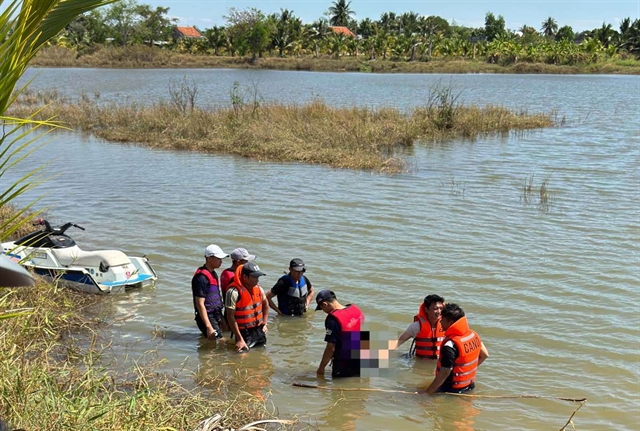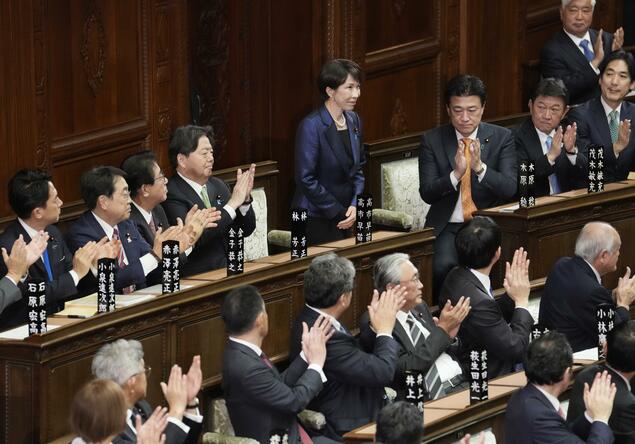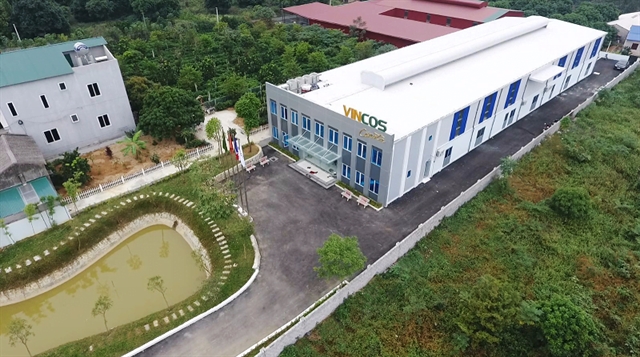 Op-Ed
Op-Ed


|
| A surveillance camera on a street in Vĩnh Long City. Photo vietnamnet.vn |
Khánh Dương
In order to quickly achieve smart city ambitions, authorities in the Cửu Long (Mekong) Delta province of Vĩnh Long recently gave the green light to installing a network of surveillance cameras.
Around 114 cameras will be fitted around Vĩnh Long City, especially at hot spots of traffic accidents and near industrial zones in order to record traffic violations and identify criminals.
The system is expected to keep the city safe and give the police many extra pairs of eyes in the skies.
On paper, it’s a great idea and will do so much to improve the well-being of all who live there, but this does come at a cost.
According to local authorities, each camera costs between VNĐ60 million (US$2,600) and more than VNĐ120 million ($5,200).
About VNĐ199.1 billion ($8.7 million) will be sourced from the provincial budget to buy and install new cameras.
For a poor province in the Mekong Delta region like Vĩnh Long, nearly VNĐ200 billion is a huge amount to spend.
Last year, the province collected more than VNĐ4.8 trillion ($208.7 million) to its budget and was struggling to cover spending which reached more than VNĐ6.3 trillion ($274 million).
The underdeveloped province is among the localities assisted by the Government in the national target programme on sustainable poverty reduction.
Plus one decision has left some with a bitter taste in their mouths as authorities in Sóc Trăng approved a package of VNĐ1 billion ($43,500) to install cameras at houses of 12 officials of the provincial Party committee.
The State budget which is supposed to be invested in public services and to serve people now seems to favour those in charge.
Eventually they bowed to public pressure, and the cameras were never installed.
Vĩnh Long and Sóc Trăng are both poor provinces. In fact Sóc Trăng tops the Delta region with the most poor households.
A large number of local residents are in need of stable houses after theirs collapsed to the river due to land erosion.
Schools need repairs, hospitals need more beds and roads need expanding, so really the focus should not necessarily be on new cameras.
Tạ Văn Hạ, National Assembly (NA) deputy from Mekong Delta province of Bạc Liêu and member of the NA Committee for Culture, Education, Youth and Children said that a poor province spending hundreds of billions of đồng on surveillance camera installation is a waste.
Provincial budget is collected from public tax payment. The payers, ordinary people, always want the money to be spent in a transparent and effective manner.
In case of limited budget and disadvantaged conditions, how to spend provincial budget in a smart way to improve local lives puts pressure on the authorities.
Keeping everyone happy is a tough ask.
Vĩnh Long Province now has more than 6,000 cameras paid for from both provincial and community budgets.
But the authorities still want more, and some say the upkeep of the cameras is not being carried as well as it should be.
It’s one thing placing a camera above a crime hotspot, but at the same time someone needs to monitor it constantly to make sure all is well in the area.
Trương Đặng Vĩnh Phúc, director of Vĩnh Long Province’s Department of Planning and Investment said the installation and investment of current camera system in the province are not synchronised so they are unable to connect to the new camera system.
Meanwhile if more attention is paid to the maintenance work, surely they can still get the best out of the 6,000 already erected.
The cases of Vĩnh Long and Sóc Trăng are not unique demonstrating public spending is being invested in the wrong place and not focused on urgent matters.
NA deputy Tạ Văn Hạ said the waste in public spending of Vĩnh Long and Sóc Trăng are tiny leaks that might be ignored but pose dangers to the general State budget.
The audit reports presented at annual NA meetings reveal bad spending which violates State Budget Law, one of the reasons leading to budget deficit.
It cannot be denied that surveillance cameras, if used and maintained properly, have a hugely positive impact ensuring social order and security.
Thanks to surveillance camera footage, police are given a massive head start catching robbers, rapists and even murders.
In Hà Nội’s pedestrian zone, since cameras were installed to record littering and punish those who throw garbage, the streets have become cleaner.
In many residential areas, people, organisations and private companies donate money to install cameras to keep their areas safe. Residents themselves maintain cameras. Mobilising sources from communities is such a good idea in the context of burdensome budget.
For long-term solutions, it is necessary to have practical measures to improve people's knowledge and awareness to keep crime down.
Once every citizen has a sense of building a common civilised lifestyle and keeps eyes on public security, their eyes are much more effective than thousands of costly surveillance cameras.
Cameras are important, but so too are the eyes of the people in the community who can be just as effective watching out for wrongdoings.
We live in a world were Big Brother is often watching, we just also need to prioritise just where and how to spend limited cash for the benefit of all of society. VNS




